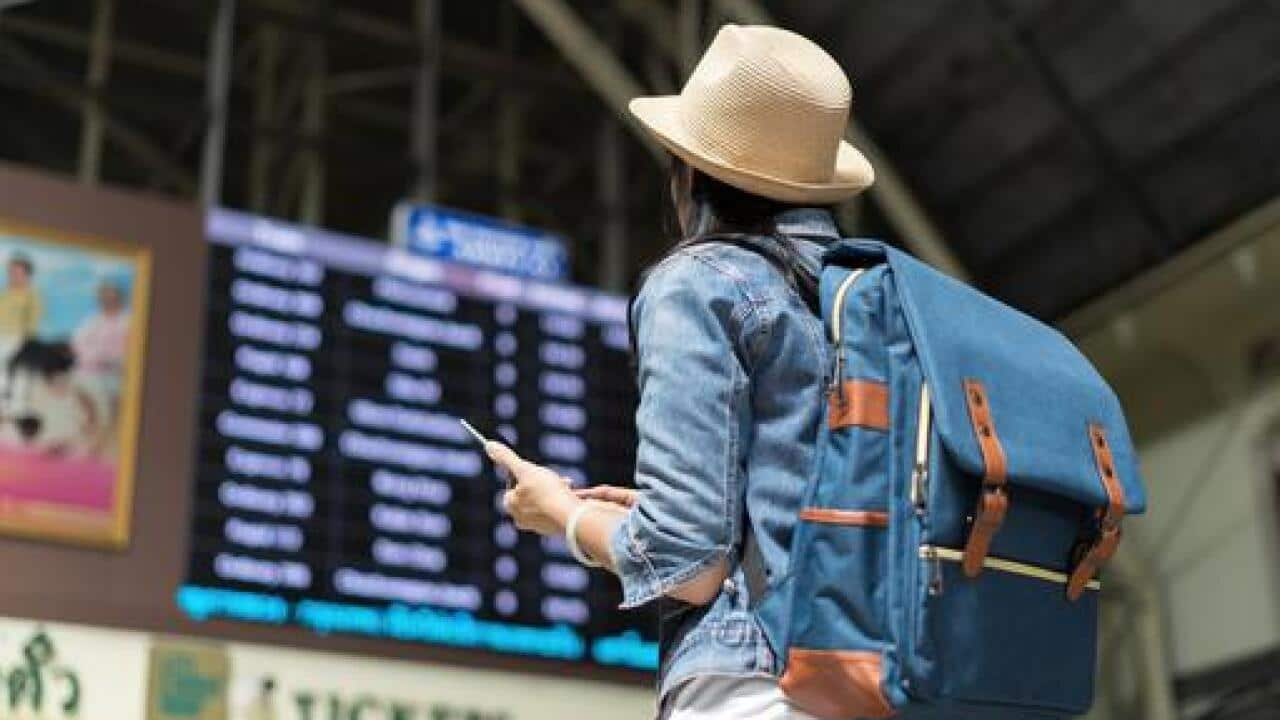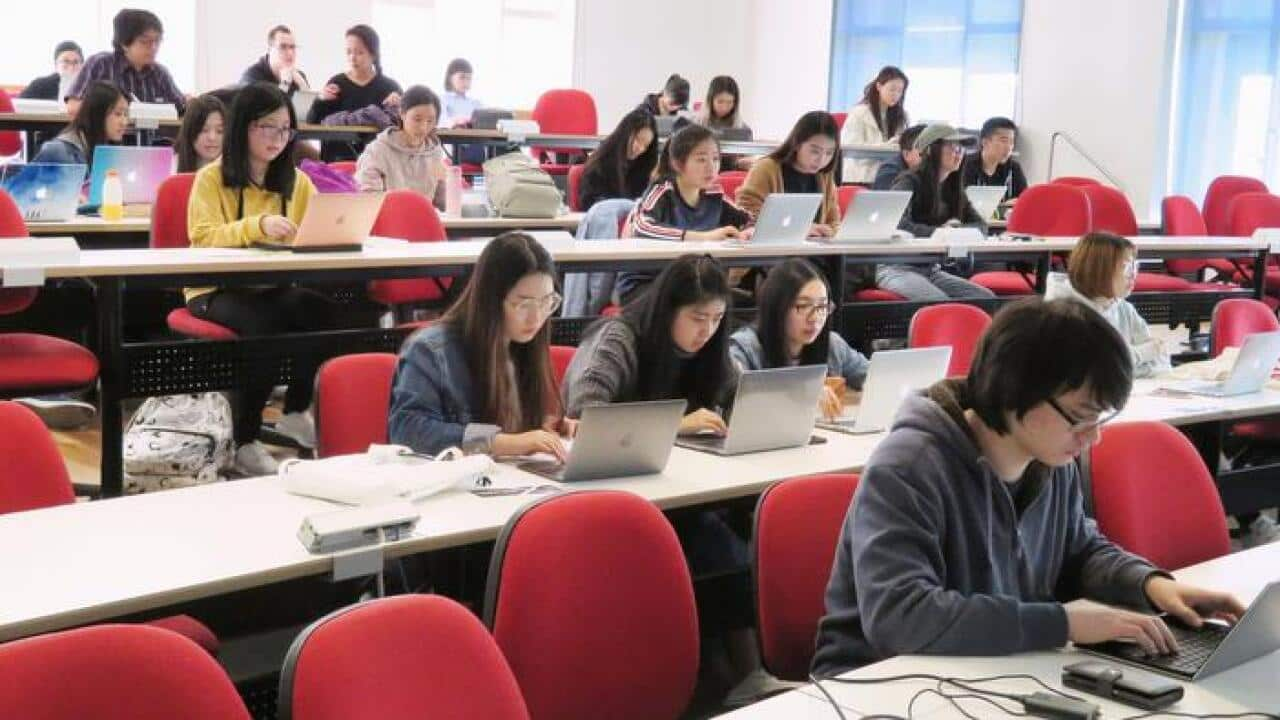In mid-May, after graduating from university with a degree in nursing, Shally was granted a Subclass 190 Skilled Nominated visa, with the sponsorship from the Victorian government, and became a permanent resident in Australia.
The life-changing opportunity came just in time, as one week later, the Victorian government announced the closure of the state sponsorship program after the yearly limit had been reached.
The conclusion to her "emotional journey" seemed to have come out of pure luck, as Shally only recently moved to Melbourne from Sydney and her application for the Victorian sponsorship program was only submitted in March. But the 22-year-old’s success came after spending four years preparing her permanent residency application, and more than six years after she first fell in love with the country.
But the 22-year-old’s success came after spending four years preparing her permanent residency application, and more than six years after she first fell in love with the country.

Many Chinese students in Australia have to change their studies and life plans due to changes to immigration policies. Source: Getty Images/Kosamtu
“It all started as soon as I arrived in Australia and began my undergraduate study. I have been thinking about what I need to do to prepare for my PR application.”
In 2014, Shally, who was 16 at the time and in high school, visited Australia as a tourist and fell in love with the laid-back lifestyle.
She soon arrived back in the country in 2016 and began her studies in Sydney.
In 2019, she graduated from Western Sydney University, with a level three National Accreditation Authority for Translators and Interpreters (NAATI) certificate, and a Pearson English Language Test score of seven.
She was then qualified and able to apply for permanent residency.
“It is a win-win for me to keep doing what I like for work and migrate to Australia at the same time.”
Shally is grateful and full of hope for her future.
However, not all temporary residents have done the preparation as adequately as Shally had, and many are faced with the prospect of returning back to their country of origin.
On May 28, the Victorian government announced the closure of the Skilled Nominated visa program for the financial year.
A spokesperson from the Department of Jobs, Precincts, and Regions, which manages the state nominations for the program told SBS Mandarin: “It has reached the cap of the program by the 28th of May when it stopped accepting application”.
The spokesperson added that it was due to “the number of applications received by the Victorian government had surpassed significantly the quota that the Victorian government has got from the Federal Government.”
Melbourne-based nurse Wendy Guo is one of the many applicants who missed out.
Working in a GP clinic, she told SBS Mandarin: “I’ve been working without any break since February, 40 hours a week. I’ve completed more than 1,000 flu vaccines for patients in one to two months.”
“I’ve been working on the frontline all the time. I cannot understand this, and I’m deeply disappointed,” she added.
Although the Victorian government states that applications can be re-submitted in the new financial year, rejection means that people like Wendy who are on expiring visas have to completely re-think their work and life.
She is considering applying for the COVID-19 pandemic event visa, a temporary visa that lets applicants stay in Australia to work if they are employed in a critical industry sector.
She hopes that she can “call this land home” after all the years she spent studying and working in the country.
For some migrants, the desire to stay in Australia has seen them move cities.
Chinese student Zhou Li has spent nine years trying to obtain permanent residency.
During this time, he has studied in two universities, for three different majors, and moved from Canberra to Tasmania.
He began his studies at the University of Canberra, majored in media studies. In 2017, he learned that his major was not included in the Skilled Occupation List for migration, and it was nearly impossible for him to stay and apply for permanent residency after graduation.
Thus he began searching for another major.
He travelled back and forth between Canberra and Sydney, in the hope of getting a degree in the Management of Human Resources from another education provider to help with his application. However, the nomination policy of ACT kept changing, which made it harder to prepare his application. Eventually, Zhou abandoned everything he had in Canberra and moved to Tasmania to begin an IT degree.
However, the nomination policy of ACT kept changing, which made it harder to prepare his application. Eventually, Zhou abandoned everything he had in Canberra and moved to Tasmania to begin an IT degree.

Chinese students studying abroad dressed in academic gowns pose during a graduation photo shoot at Curtin University in Bentley, Perth Source: Imaginechina
He said that many of his classmates came to Australia “only to get their PR” and “do not care at all what they are studying” as long as that degree helps them with their applications.
IT or other related occupations are among the most stable ones on the Skilled Occupation List, which are considered by many Chinese students to be a relatively easier path to get permanent residency.
As of now, Zhou has finished all his classes at the University of Tasmania. And he has never been more determined to stay in Australia.
“I spent my entire youth here. My connections, my friends, they are all here. That’s why I choose to stay.
“I think it’s more important to think through why you are trying to get PR, and what you will be doing after you have it.”
Tasmanian immigration agent Jerome Zhang agrees with Zhou. He says that immigration should be considered as part of the plan for an applicant's future life, not the goal.
He says that international students should be cautious when making their decisions, noting that migration polices in Australia have changed a lot due to various reasons, with state regulations changing even more dramatically.
“It’s becoming more and more popular for these students to go to regional areas to study, and finally get their PR. However, I don’t think this is without risks.
“It will be very irresponsible to say that the migration policy will not change and you are in a very safe position.”
These stories of migration are part of the ground-breaking SBS series, , which airs over four weeks from 8.30pm Wednesday 1 July on SBS and .
It’s also subtitled in and added to the , available after its premiere.






